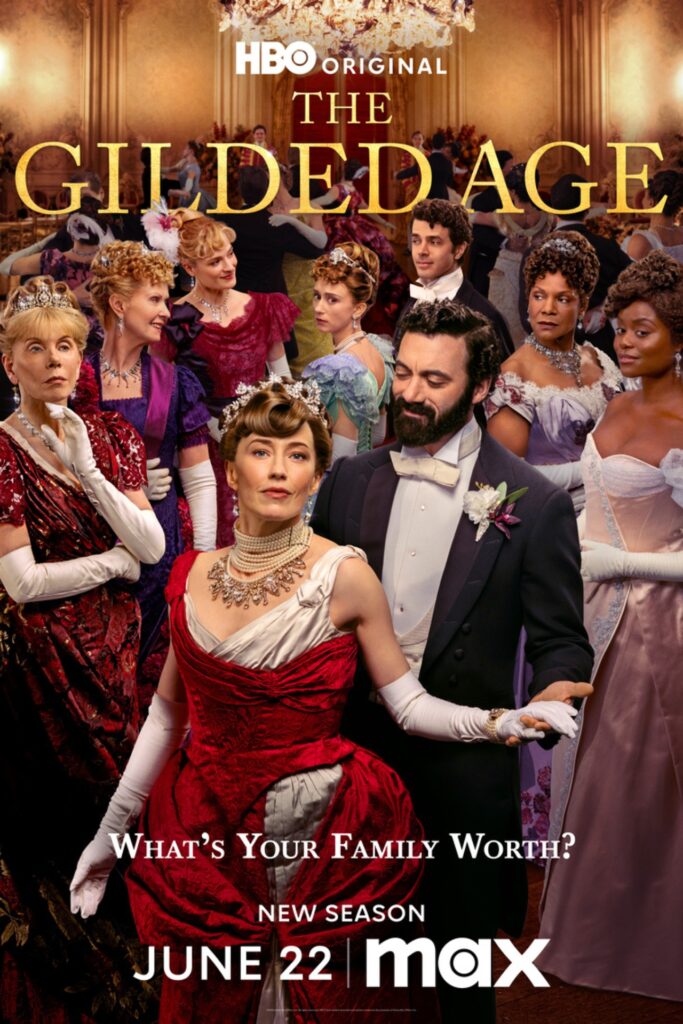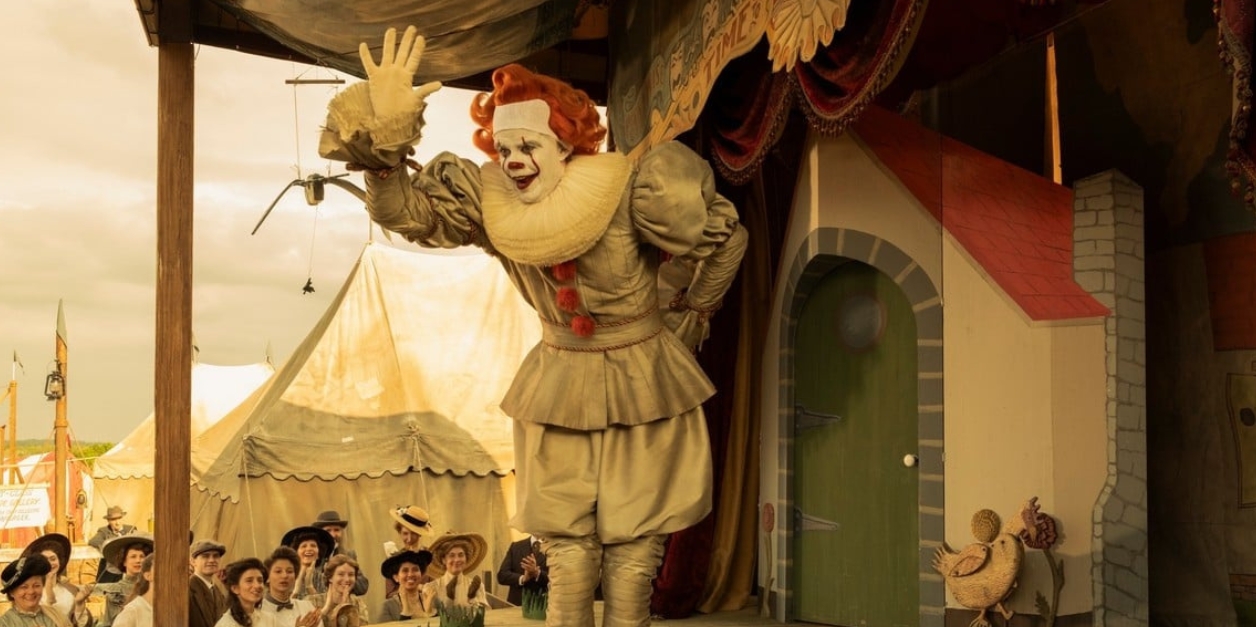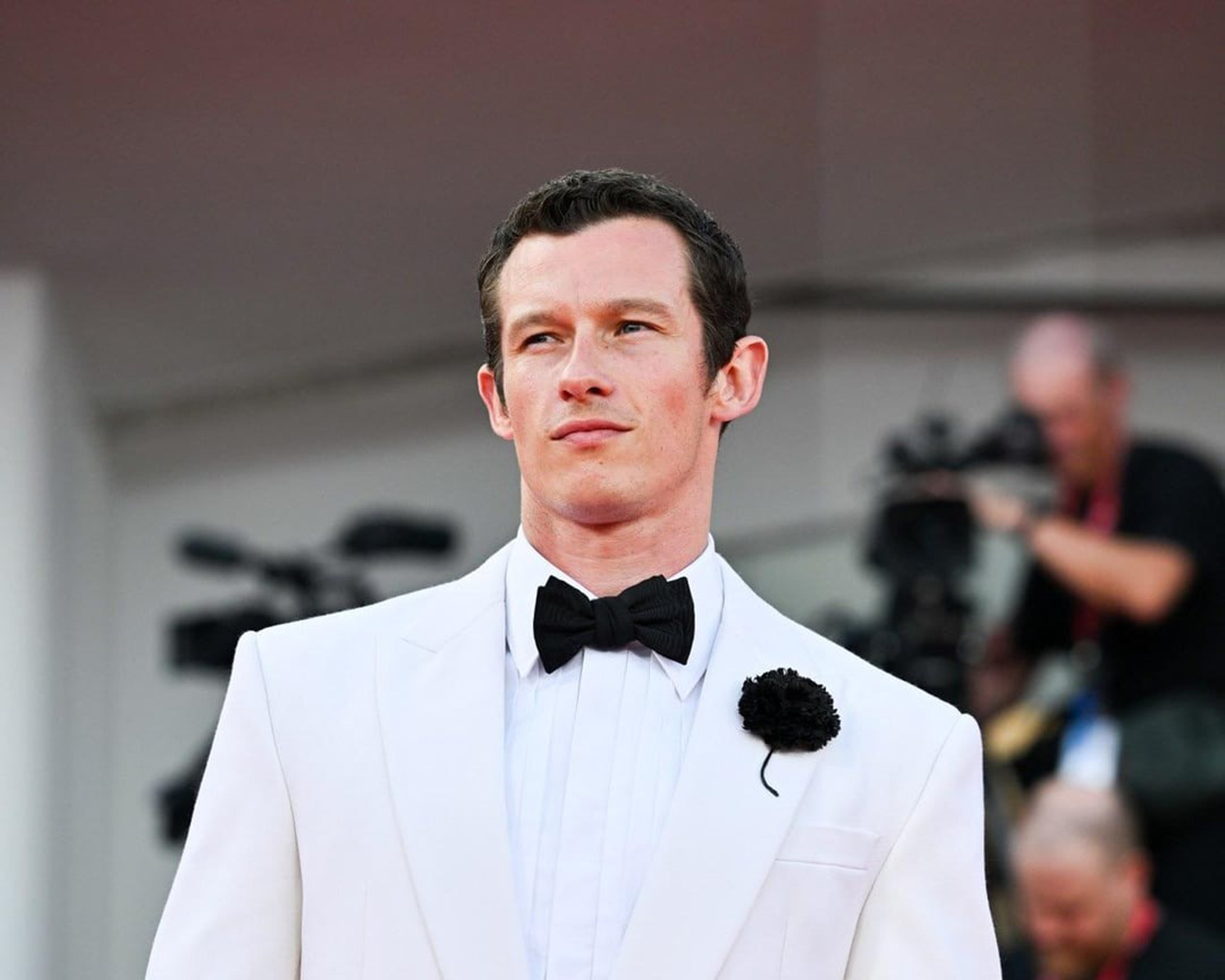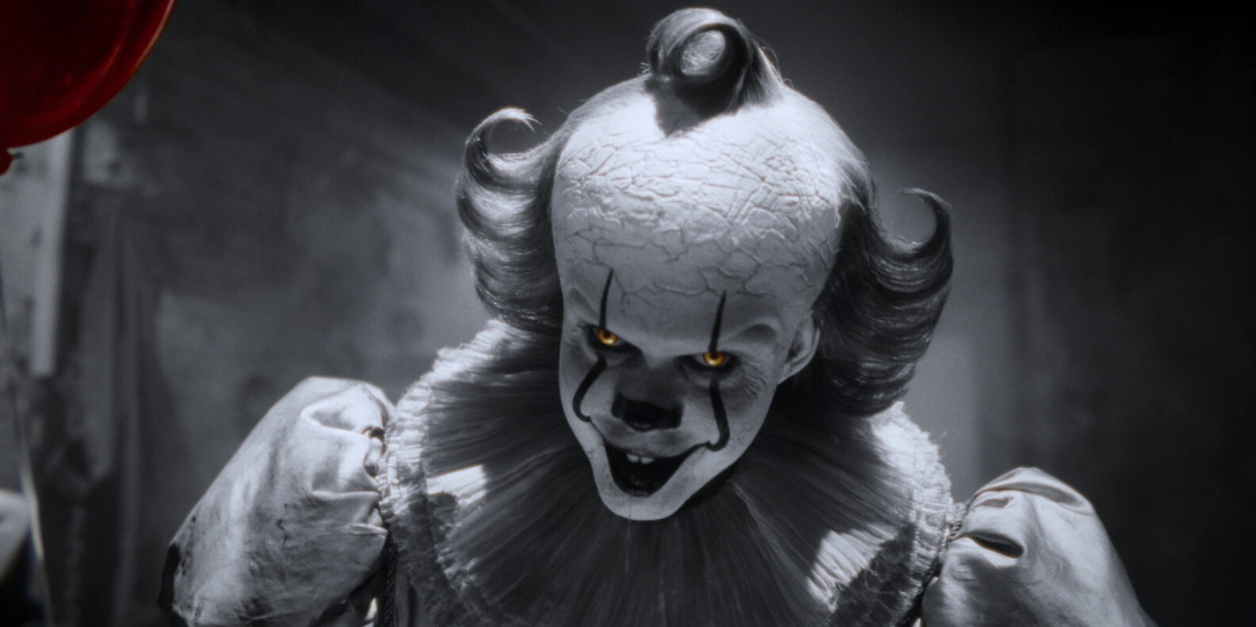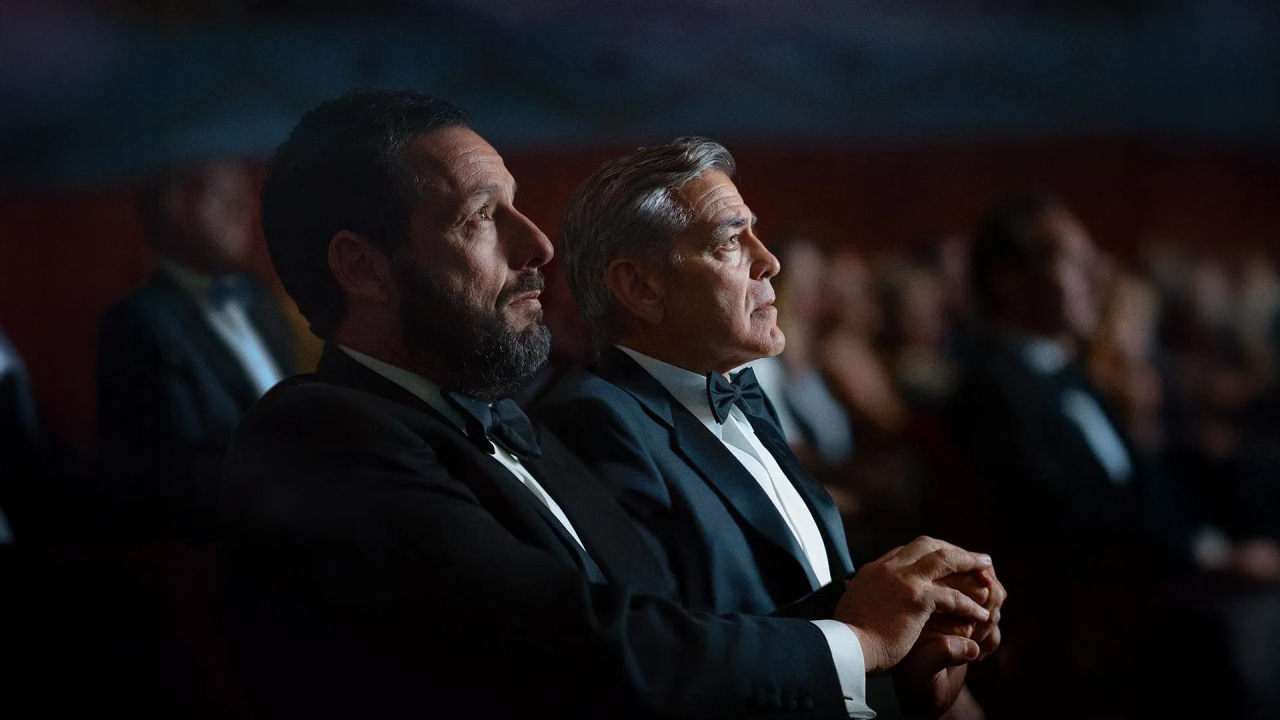‘The Gilded Age’ season 3, episode 3 recap: shopping for a duke
The show explores the Black experience during the Gilded Age and Gladys accepts the duke
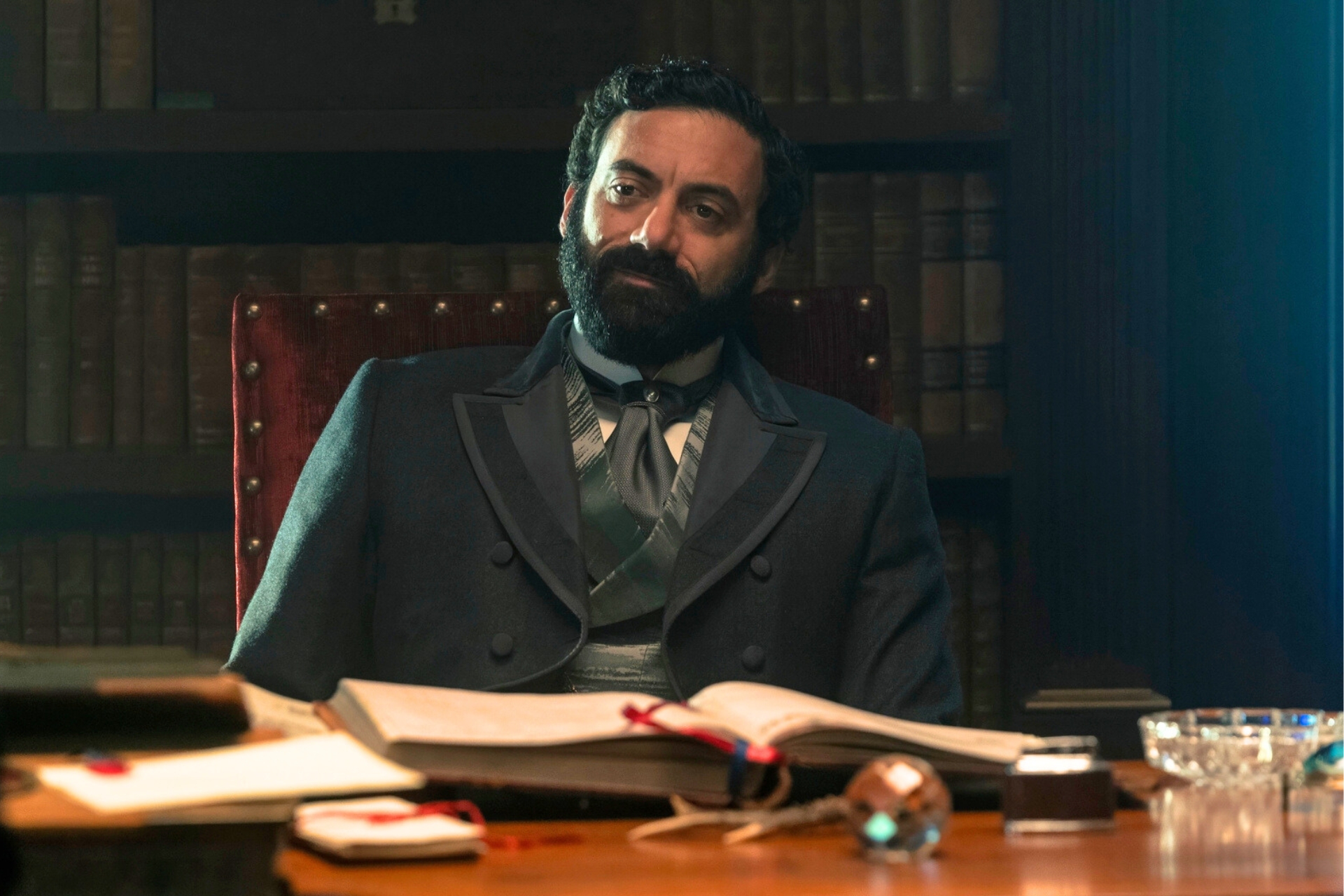
THOSE FARMIGA EYES say it all. If you didn’t know, Taissa Farmiga, who plays Gladys Russell, is the younger sister of Vera Farmiga, star of The Conjuring films and then some. (The younger Farmiga has dipped her toe into the horror genre, too, including The Nun films and American Horror Story.) It runs in the family, then, to have the kind of eyes to strike fear into. Good thing too, episode three just turned into a nightmare for Gladys.
Last week, the Duke of Buckingham, or Hector, brought his lawyer along from dreary England (a reprieve, I’m sure) to iron out the particulars of his engagement to the Russell heiress. It was common practice in these times for financially beleaguered aristocrats to seek out young, very rich wives to replenish their coffers. Marriages brokered like these would continue well into the 20th century. And if you watched Downton Abbey (also written by Gilded Age writer Julian Fellowes), you’d know this was how the Crawleys kept their beloved abbey well after the First World War. (Maybe Cora’s ancestors will make a cheeky cameo one episode.)
Hector is also facing a similar property issue: his castle is in ruin and will tarnish his family’s standing in London society. His eyes are set on the Russell dowry, but he isn’t too keen on sharing it. Below, we recap this week’s episode.
Hector gets cold feet
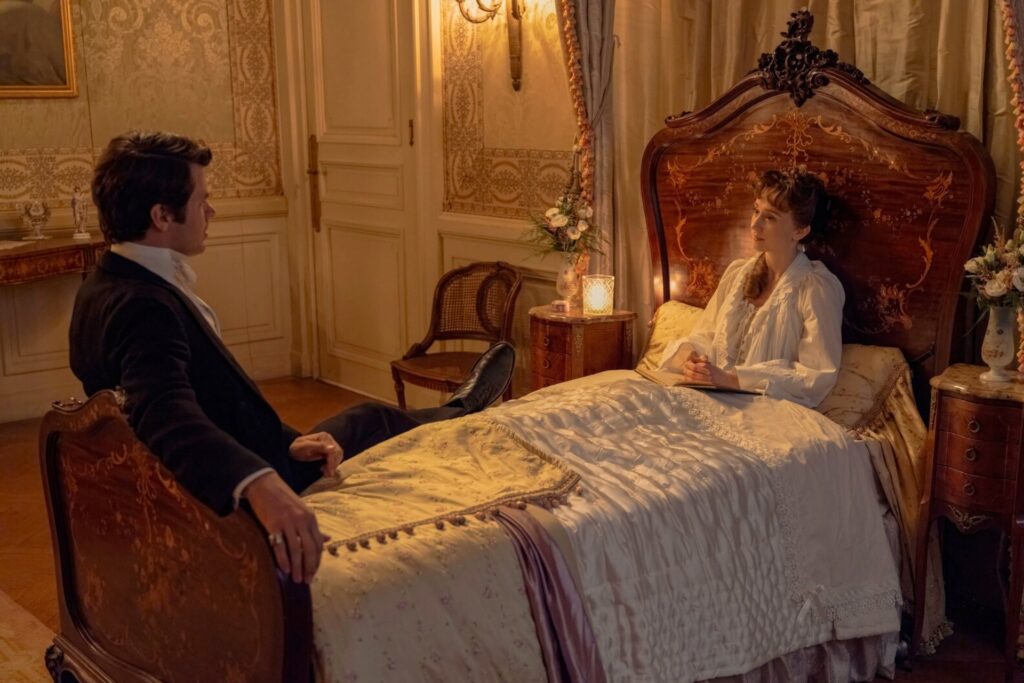
Behind closed doors, George and Hector (and his lawyer) negotiate Gladys’ dowry. It’s alluded to that it’s a sizeable chunk of the Russell fortune, enough of a risk that George’s business partner advises that it could strain expanding his railroad. Still, George plays his cards right: he’ll offer more, only for that extra sum to be given to Gladys as an annual allowance. In other words, she’ll still be financially independent. Momentarily breaking off the engagement, Bertha now has to deal with the social fallout of losing a duke.
It’s a major red flag, then, when at the Russell’s first social gathering afterwards that Hector is already schmoozing with other heiresses. The duke is up for grabs once more, and every girl and her mother is vying for his attention. One of these heiresses is from the Delancey banking family. Sure, they’re not in any way close to how much the Russells are worth. But enough of a threat for Bertha to summon Mr Delancey to 61st Street. Luckily, Mr Delancey has no intention of marrying off his daughter to the duke; he wants his grandchildren to grow up in New York. Phew, thinks Bertha. But he thinks her formidable . . . and Bertha has been without George for a while, who doesn’t necessarily recognise her social prowess. There’s enough of knowing looks between Bertha and Mr Delancey that we’ll have to see if that evolves to much later.
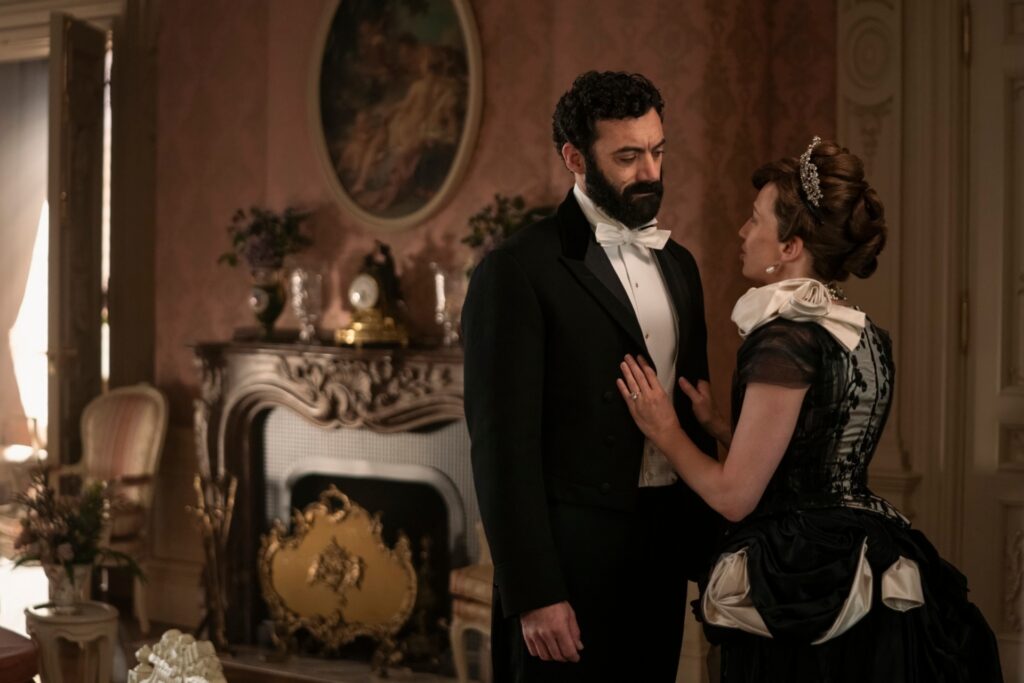
Anyway, George gets around to how socially advantageous a union between Gladys and Hector would be. So much so that he and his wife invite Hector back to stay with them and chat with Gladys. Surprisingly, Hector gets on her level with a bit of small talk and British charm (yawn! Don’t fall for it!), and she acquiesces. The Russells make it official at the unveiling of Gladys’ John Singer Sargent portrait from the first episode (the most un-Sargent portrait ever, by the way, as though they Sargent-iffied Taissa Farmiga into ChatGPT). Of course, this impresses Bertha’s rivals. The camera closes in on Gladys toying with her pearl necklace for the strand to uncharacteristically snap at the precise moment.
Monster-in-law
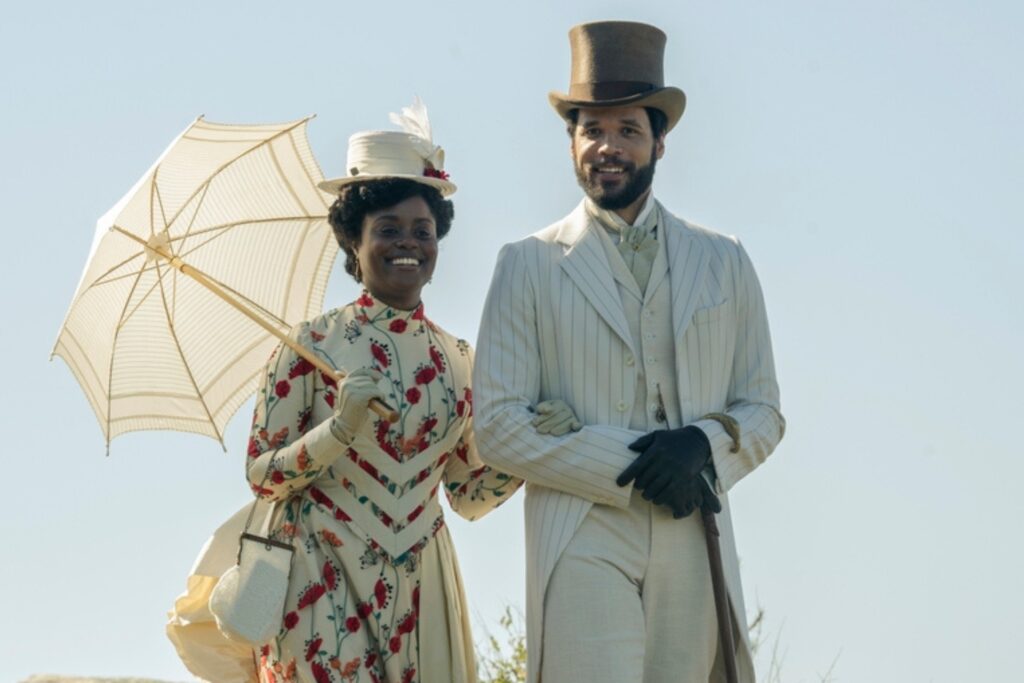
One of the sharper storylines emerging from season three is the Black experience during the Gilded Age. Our first glimpse of it was in the upper-middle-class Scotts, who own a pharmacy in Brooklyn, as well as Peggy’s editor (and fling) at the Globe newspaper.
After battling a, for the time deadly, cold, she takes a liking to Dr William Kirkland, a descendant of northern freedmen. He invites the Scotts to a family party in Newport, where they’re greeted by the condescending Mrs Kirkland (played by the devastating Phylicia Rashad), flexing her superiority in being old-ish money, a Newport-native, and light-skinned. To jog your memory, Peggy’s father is a freedmen who moved to New York from the south, of which Mrs Kirkland rebukes: “we don’t know anyone from down there.” She then instructs her nanny that her grandchildren shouldn’t play in the sun for too long, fearing they’ll get darker. Much abound for the couple.
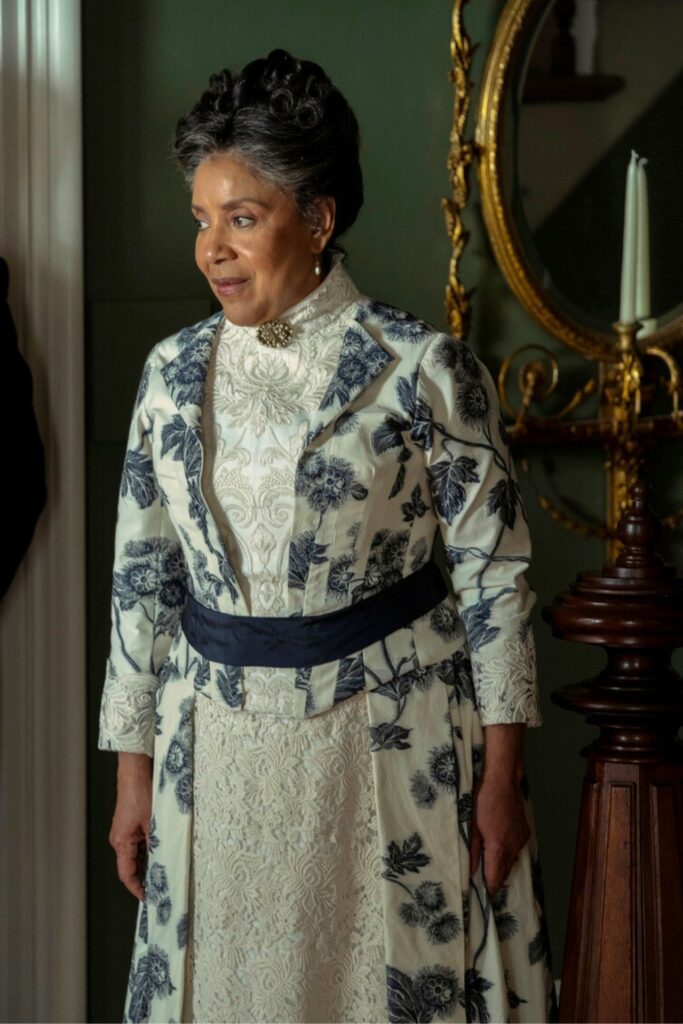
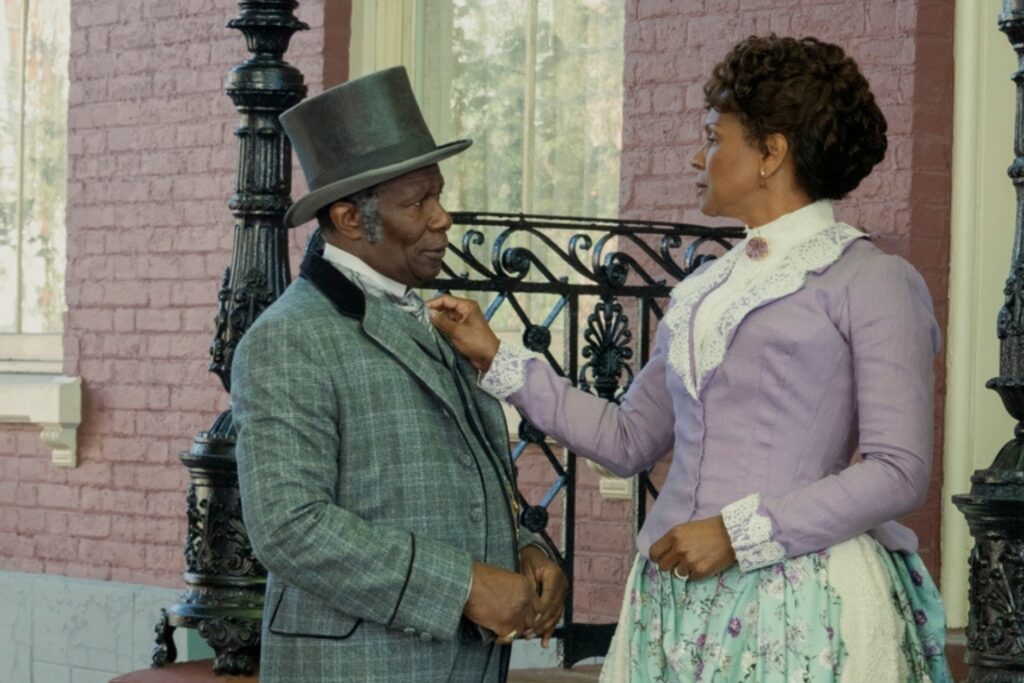
Ada hires a psychic
We all do desperate things at our lowest. After learning that Mrs Armstrong was the only person in the house to sign her temperance pledge. Ada admits that it was just a cover that she simply misses her late husband. (If the only person in your corner was a racist, I’d drop it too. Fast.) Rather than moving on, though, Bauer, the house’s German cook, talks the widow into getting a psychic to pierce the veil and talk to Luke one last time. It’s an extravagant indulgence as Agnes. Agnes spent the episode complaining about how much she’s become a “hanger-on”, walks in on their seance. If this is how the Forte money is being spent, I’m starting to side with Agnes too.
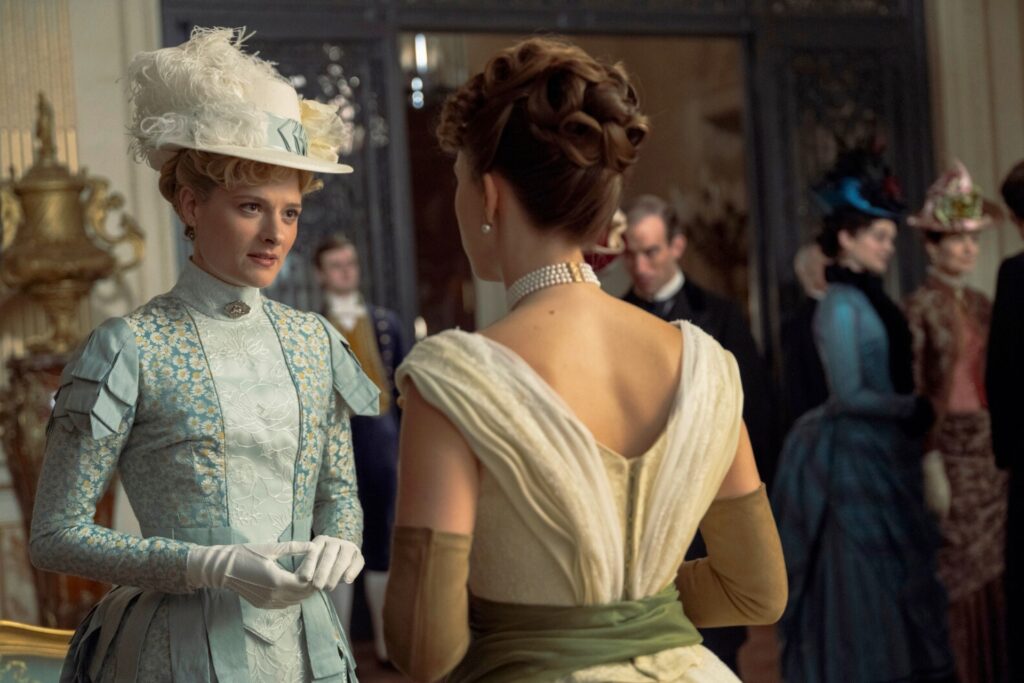
Meanwhile, Larian is still going strong. Marian was still unsure about her new beau. Telling her aunt Ada that she wants to be cautious after two failed engagements. We previously thought no one stands to oppose the pairing. However Bertha’s French lady’s maid reports that she saw the two getting intimate (it was just kissing, really). Naturally, Bertha thinks Marian isn’t a formidable candidate to bear her grandchildren. However she has bigger, duke-shaped fish to fry for now. It is a double-standard, though, how much she brushes her son to marry for love. “Boys will be boys.”
Anyway, wedding episode next week!
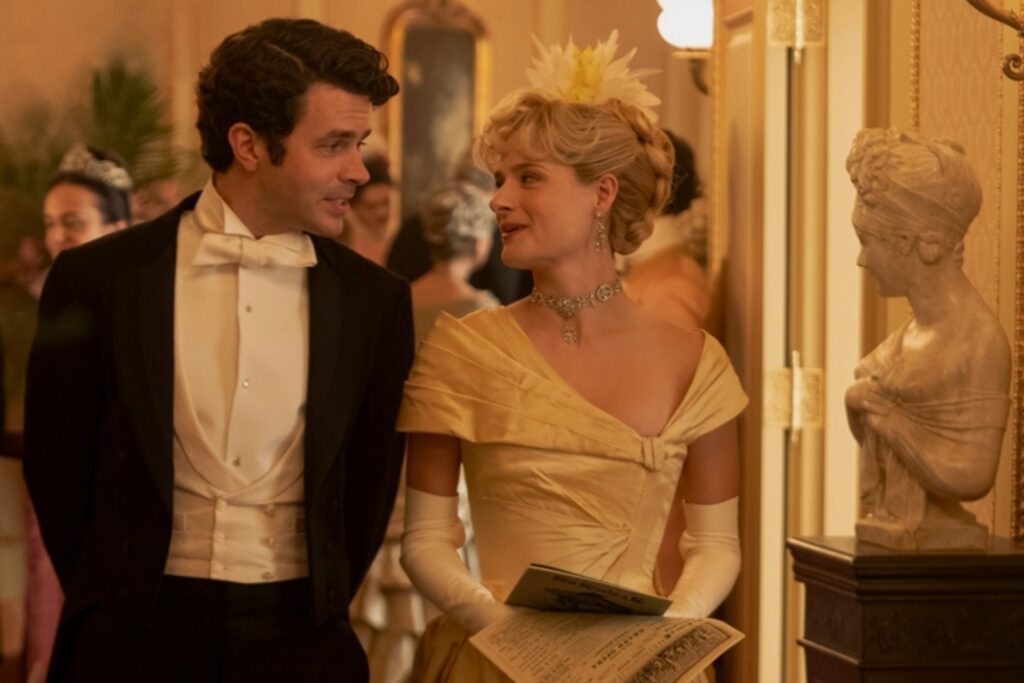
Related:
The best TV series, movies and documentaries to stream in July
All of the JFK Jr outfits from the set of Ryan Murphy’s ‘American Love Story’









